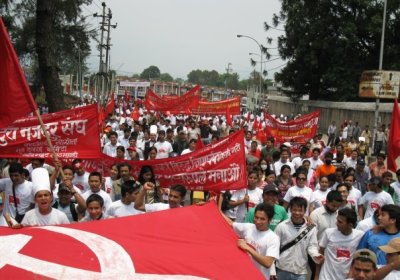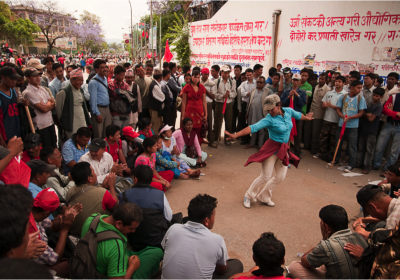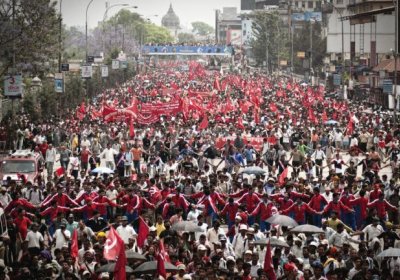Secret US diplomatic cables released by WikiLeaks on March 15 show that former US ambassador to Nepal, James Moriarty, actively sought to destabilise Nepal’s peace process in order to prevent a Maoist rise to power.
The Maoist-led People’s Liberation Army waged a decade-long “people’s war” against Nepal’s centuries-old feudal monarchy. A people’s uprising in 2006 brought the monarchy down, opening the way for an elected constituent assembly in 2008.
Nepal
Acting Nepali Prime Minister Madhav Kumar Nepal has argued that bullets, explosives and other munitions no longer constitute “lethal military hardware” as long as they are to be used for “training and other related works”.
MK Nepal was seeking to justify the decision to allow India to resume arms supplies to Nepal. He has never been elected and came to power after the Maoist-led government was brought down by a soft military coup in 2009.
The sixth plenum of the Unified Communist Party of Nepal (Maoist — UCPN(M)) began on November 20 in Gorka District. It was the largest meeting in the party’s history; more then 7000 local members are taking part in discussions.
The Nepalese revolution is in a state of limbo. The current government resigned in May, but continues in a caretaker fashion, as no alternative has come forward.
The 2006 Jana Andolan (“People’s Movement”), which shut down Nepal and overthrew the 240-year-old Shah monarchy, was widely hailed as the birth of a new era of democracy.
For the first time, the people of Nepal were able to elect a constituent assembly in 2008, giving the mass of Nepalis an unprecedented say in the future of their country.
Jed Brandt, a member of US Kasama Project, is in Katmandu reporting on the ongoing struggle between Nepal’s poor majority, led by the Unified Communist Party of Nepal-Maoists (UCPN-M), and the US and Indian-backed elite that removed the UCPN-M-led government last year.
The following joint statement of solidarity has been signed by a number of left and progressive organisations, in the Asia-Pacific region and beyond. If your organisation would like to sign on, please email international@socialist-alliance.org
* * *
Support the struggle for democracy and social justice in Nepal
May 6, 2010
On May 1 in Kathmandu, between 500,000-1 million people took over the streets in a dramatic show of force by Nepal’s Maoists to demand a return to civilian rule and a democratic process of creating a new, pro-people constitution. With the government refusing popular demands for its resignation, an indefinite general strike has been called from May 2 in what the Maoists are calling a “final push” to resolve the struggle for power between the poor majority and Nepal’s elite.
On September 19, Nepals finance minister and member of the Communist Party of Nepal (Maoist) Dr Baburam Bhattarai announced the first budget of the Republic of Nepal.
While the historic elections for a constituent assembly were held in April — a product of the pro-democracy uprising that has ended Nepal’s monarchy and created a republic — Nepal is still yet to have a new government sworn in.
Nepal, a small landlocked nation in the Himalayas wedged between China and India, is an incredibly poor and underdeveloped nation.
On May 28, Nepal entered a new era when the constituent assembly in its first meeting since the April 10 elections overwhelming voted to abolish the 240-year-old monarchy and declare Nepal a democratic republic.
Originally published in Liberation, the magazine of the Communist Party of India-Marxist-Leninist Liberation. A longer version can be found at the socialist e-journal, Links, http://links.org.au.
- Previous page
- Page 2
- Next page






